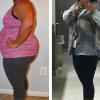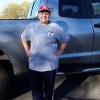Search the Community
Showing results for 'revision'.
Found 17,501 results
-
Do your liquids include protein shakes? I had my revision the same as yours on the 13th - having 2 shakes per day plus soft foods. Oatmeal for breakfast, creamed potato soup for lunch, and fat free refried beans - all 2 ounces. I am keeping full with this little bit of food.
-
I am having a revision from Lapband to RNY. I have my preop appointment with him on the 29th so I should find out more then. I have not seen a nutritionist as of yet but it would be great if he had one in the office. I just bought a case of protein drinks from Costco - 30g per serving of protein and only 1g of sugar and 5g of carbs. I had to rely on protein drinks after my lapband surgery 5 years ago.
-


Eroded Band To Gastric Sleeve - Requires Six Month Program?
FXDF2008 replied to FXDF2008's topic in Gastric Sleeve Surgery Forums
I hear you Jasmine. I went nuts after my band was removed. It's amazing how quickly the weight comes back. Now I'm miserable and feel the way I did pre-band which is why I don't want to have to wait another six months. The company I work for is in the process of being bought out so there is a very real possibility that I may not be covered in six months. I have started the six month diet (earlier this month) but that puts me into June at the earliest to have my surgery. By then it will have been fifteen months that I will have been without some sort of Bariatric assistance. It just doesn't make sense why the insurance companies would make us do this after already having a band. Why are you revising to the sleeve? -


I developed a hiatal hernia & reflux from the band - did you?
Oregondaisy replied to Cleo's Mom's topic in LAP-BAND Surgery Forums
i am having a revision to a sleeve. I am sick of the band. It's been a big problem for me for awhile and I want something where I don't have to keep going back to the dr. -


I developed a hiatal hernia & reflux from the band - did you?
Elisabethsew replied to Cleo's Mom's topic in LAP-BAND Surgery Forums
Thank you for posting and first, let me say how sorry I am that you lost your husband. I feel like I wrote this post. I did all the right things but never got to the optimal level of restriction I was promised. In fact, I never got close. I started waking up choking on acid regurgitation and did the same things you did. I stop eating at least 5 hours before I go to bed. Some nights are good and some are bad... no rhyme or reason to it. Now, I have increased heartburn that IS related to eating. When I don't eat, I am OK. When I do eat, heartburn is felt within a few minutes and hot liquids make it worse. I suspect my band was too loose and that a hiatal hernia has developed. I have all of the classic symptoms. I've also had enough of the band and it's getting out of me on 4/1 when I revise to a sleeve. I hope you're doing better. -
I had a revision from Lapband to gastric bypass on Nov 11. I’m on liquids for two weeks but I’m so hungry and advice?
-


WHERE IS THE NEGATIVE?
Tiffykins replied to kpbrighton's topic in PRE-Operation Weight Loss Surgery Q&A
Each person has their own "negatives". I personally had an extensive, exhausting and mentally/physically draining recovery because I was a revision patient with major complications. The negatives for me were: 1) Trying to sip enough early out seemed impossible 2) Taste buds changing 3) Developing a whey protein intolerance and mild lactose intolerance post-op 4) Lack of energy early out, but it was temporary Of course, the positives far outweigh the negatives especially since everything I experienced was over within a few weeks to couple of months, and I have a very normal, active, fun social life. There are plenty of us out here that "get WLS" there's others that don't. Unfortunately, the sleeve only does so much. I still have to be mindful of what I put in my mouth. I can still suck down a 3000 calorie milkshake if I wanted to so the point is making a permanent, and lifelong commitment to better food choices, and to honestly change your relationship with food. The sleeve makes this process much easier. Every WLS has failures even the heavily touted Platinum standard Duodenal Switch. I've read several stories of regain, or DS'ers not getting to goal, and their surgery is far more drastic than even RNY. I take 4 vitamins a day. That's it, nothing major, 2 multis, 2 calcium citrate. Make it a habit, it's really not that big of a deal. To address some of your concerns: 1. Death - huge I know. Ask your surgeon their mortality stats. If it's more than 1% get a new surgeon, and find out the details. 2. A Leak - also very risky. Same as above 3. My head hunger issues will be brought out huge. Start working on it now, get a new coping mechanism in place before surgery, therapy is a great tool especially if you can find someone that works with bariatric patients, along with support group meetings and using online support groups, find a buddy that has surgery around the same time to share ups and downs, get a mentor that you trust, and can talk you off the ledge when you're wanting to take a dive in the pool of caramely goodness of Girl Scout Samoa cookies. 4. My "food to cope" tool will be gone! Same as above 5. possible acid reflux... what's worse being fat or popping a Prilosec or Nexium to prevent reflux? 6. Gaining the weight back Establishing better habits, measuring portions, staying within your caloric intake guidelines is the best options to avoid gain. It's easy to gain weight, I won't lie, but for me, it's still super easy to lose it by following the rules. 7. not really losing anything that's pretty rare, I've read plenty of slow losers, but you have control of how you lose weight. Some do it differently than I did and that's okay, some do not want to give up carbs, I did because I knew I'd lose fast and hard. That's the path I chose, and I couldn't be happier with how I did it. Some have metabolic issues that slow weight loss down, and that has to be taken into consideration as well as activity level, and each individuals needs. One thing you have to remember is that the VSG is not some miracle that is going to cure it all. They operate on our stomachs, not our brains. So, getting ahead of the curve by establishing some good habits NOW will go a long way post-op. Eating slower, chewing your food more, sit your utensil down in between bites, do not drink with your meal, eat protein first, stretch your meal out to at least 20 minutes. Don't sit in front of the TV to eat, focus on what you are putting in your mouth/body and see how your body responds. Best wishes! ! ! -


Lapband removal and RNY in May
suzyboo43 replied to Missfree49's topic in Gastric Bypass Surgery Forums
Was your recovery hard with this? My revision. From lap band to RNY with hernia repair is in 5 days.. I’m so excited! -


Embarrassing Question - What To Tell Casual Friends
Karen W replied to Karen W's topic in Gastric Sleeve Surgery Forums
Thanks so much to all for your suggestions. Hiatal hernia repair definitely seems like the way to go. And I've had some reflux problems of late, so who knows what the surgeon will find. I don't have any family in the area, and only a couple family members 1500 miles away. My 90 year old mother doesn't need to know. I am very close to my daughter and will tell her soon. At this point, I am thinking I won't say anything before the surgery. I am going to spend a couple days with friends in the city I used to live in. When I return home, IF I find I am more house bound than anticipated (eg not playing bridge, etc), I will say I had a hernia repair. And that will explain everything. My weight loss will be the result of eating (much) less and lots of exercise. Everyone knows I used to spend a lot of time in the gym anyway. Thanks again, everyone! And I know all of you will travel your journey with great success. (The "other") Karen -- yes...we are both revisions and having our surgery on the same day. I would love to keep in touch. Karen W -


united healthcare- railroad employees?
pancake1271 replied to HYCIERRA's topic in Insurance & Financing
I have UHC and I'm a railroad employee (BNSF) I had the lapband back in 2011 and they covered it 100% no deductable, no copay. Then in Jun 2012 insurance changed. I had a revision from band to sleeve in Jan 2014 and had to pay a deductable and copay ( it came to about $900.When I went for my lapband I just had to document my weight loss attempts over the years. UHC was very easy to work with on getting it covered. -


united healthcare- railroad employees?
HYCIERRA replied to HYCIERRA's topic in Insurance & Financing
Pancake, thank you for the reply. How did the revision go and how are you liking your sleeve? I just got the call this past Friday that UHC approved me!! They just accepted my dr's notes from the past few years, so I didn't have to do 6 months supervision! I'm having my ultrasound and pulmonologist appointment on 6/17 and then I'll get my surgery date. So excited I can believe everything is falling into place finally!! -
Revision date Aug 20!! Lapband didn't fail, but after 2 years starting developing aspiration pneumonias. It look 6 more years and a pulmonoscopy to determine it was all terrible reflux! So at age 64 I am having a revision! Anything to not be sick and to stop the reflux & heartburn! Can't wait!!!
-
I too am a band to bypass revision! My surgery date in 8/11/14! I AM PUMPED!
-


Need A Houston Surgen
Dallasgrl47 replied to Dallasgrl47's topic in Weight Loss Surgeons & Hospitals
Hi, I had mine done on November 14th, I used Dr. Marza and he was great. Thanks for the reply. I hope you do great with your revision. -


How to respond when people comment on your appearance after surgery?
Tomo replied to jfuss's topic in General Weight Loss Surgery Discussions
I told some people about my first surgery. I learned quickly that in the future to keep to myself and talk in forums like this where people are supportive. I didn't tell anyone but my husband about my revision and things are easier to stay on track without all the background noise. When asked what am I doing, I tell them about my logging, counting calories, getting enough liquid and protein, my exercise (or lack thereof) and relay all the hints that I've learned that has helped me stay on track or get back on track... Etc. I do NOT mention surgery due to people's prejudices and/or intense nagging by family members. So, in essence, I lie by omission. -


???? Calling all March Sleevers....let's support each other!????
Becomingradiant replied to time for june's topic in PRE-Operation Weight Loss Surgery Q&A
My surgery date is March 6 in Tijuana with Dr Ortiz. I am doing a revision, I had the lap band done almost 11 years ago, and I have been so unhappy with it. I went through alighterme.com. I am pretty excited but also very nervous, I am going by myself which doesn't really help, so I would love to have a support group in place. Good luck to all the March Sleevers out there! -


How much weight will we expect to lose? Gastric Sleeve
BurBur replied to AchieveGoals's topic in Gastric Sleeve Surgery Forums
Before surgery, I felt like dieting was the equivalent of holding my breath. I could do it for a while, I could see super success, but eventually I had to breathe! I couldn't hold up the massive amount of will power necessary to continue on a path to a healthy life. It was like contending with an insatiable monster in my tummy who was always hungry and always in control of my thoughts and actions. I felt like I could not win no matter how hard I tried, and each attempt I made to over throw the monster left me weaker and fatter and sicker until I weighed 474 lbs and suffered from diabetes, hypertension and high cholesterol. It's been a little over a year and I weigh 265 now and I lose about 10 lbs a month still. I've lost the percentage that is normal, but I plan to continue losing. Sure, my dream is to make it all the way to 160, but this surgery was enormously successful already! Even if don't lose another pound. My diabetes is in remission, my hypertension is gone, my cholesterol is low, I don't take any meds, but the most amazing part is--THE MONSTER IS DEAD! When I eat, it feels like a choice I make for myself and that feeling is soo good, so incredible to me. I know if I'm careless, I could let the monster back in. That's a scary prospect that pops in my mind from time to time, but presently, the surgery helped me to overcome something I just could not do on my own. As you think about your own decision to proceed with surgery, consider not only what it can do for you right now, but what it may help you prevent for your future self. Sure, it's possible you might not get to your goal weight and/or maintain it for life, but you may never see yourself get bigger than you are now. You may prevent future health problems, and it will absolutely give you a stronger shot at success that you might not be able to achieve on your own volition. This is a big, big decision and goodness knows, I had major problems with my sleeve that resulted in terrible stent experience and ultimately a revision which I just had done, but I would do it all again knowing all that I know now. Very worth it! Consider that the the average weight loss for "most" is with little effort and happens in the first 6 months after surgery. If you are willing to risk the surgery and put in effort through diet change and exercise, you WILL reach your goals and be happy. Cheers! -


3 Days Post Op - Just Documenting My Journey
catwoman7 replied to doubleJointed's topic in Gastric Sleeve Surgery Forums
8000 steps is pretty high for being just a few days out of surgery. Your body needs to rest and heal. It's been several years since I had surgery, but I think I mostly walked around my house a little the first three or four days, then did a jaunt around the block every day for a few days after that. It's good to be up and moving, but don't push yourself too much - again, your body needs to heal. as far as poop, it often takes a good week for the first one (there's not much in there yet), and the first one tends to be a doozy. A lot of us start taking stool softeners a couple of days ahead of it to prepare for it. After that, a minority of people experience occasional diarrhea, but most experience constipation, often chronic (it's due to the high protein diet plus the iron and calcium (if you're taking those). I still take a capful of Miralax every morning to keep on top of it. watch out for reflux - I'm a little surprised your surgeon recommended VSG since that's been known to make GERD worse, but that's not the case for everyone. But just keep tabs on it and manage it if it doesn't resolve or gets worse (a minority get it so badly they end up getting a revision to RNY, but for most, it can be managed with PPIs). You just don't want that to get out of control - but again, you may not have issues with it. Some people have said theirs even got better after surgery, so you never know.. I haven't seen many posts about hiccups, so I don't know how common that is, but it doesn't surprise my since your stomach's been sliced and diced. And the painful transitions (when you go from lying down to standing up, or whatever) - yep, that's very common. That's really the only time I had pain. It felt like I'd just done about 1000 crunches. that went away after a week or so, I think. sounds like things are going well over all, though. Welcome to the losers' bench! -


New Here - Decision Made
Wendell Edwards replied to Coo's topic in Tell Your Weight Loss Surgery Story
Hi there! Welcome! I wrote this list a liong time ago. It's based on my own, personal experience, so it may not apply to you. Some of it that is not relevent any more has been cut out, so if you see numbers missing, that's what happened. Best wishes to you on your journey! INDEX: 1. Any question that begins with "Should I ask my Doctor about 2. "Should I tell my family and friends?" 3. "Is it normal to be REALLY NERVOUS and wonder if I will fail at this?" 4. "How can I tell if my band slipped?” 5. "Why can I eat this food one day, but not the next?" 7. "Is it possible to get pregnant while wearing a Lap-Band?" 8. "Will my tastes in food change because of this?" 9. "What food will I be able, or unable, to eat?" 10. "I weigh XXX pounds. Am I too big for the Lap-Band, and will I lose weight with it?" 11. "It's been XX days, and the scale hasn't moved. What am I doing wrong?" 12. "What are the slang words you use here, like "PB" or "SLIME"?" 13. "I had restriction, but it went away. Where did my restriction go?" 14. "Which surgery should I have?" 15. "What should I take to the hospital?” 16. "How many days should I take off work?” 17. "I'm "Stuck"! What do I do?" 18. "Do I qualify for surgery?" 19. "Will insurance pay for my surgery?" 20. "How much does surgery cost?" 21. "I'm sick, and have a fill scheduled for tomorrow. Should I cancel my fill?" 22. "How much food will I be able to eat at one meal? How much SHOULD I be eating?” 23. "How many fills will I need to hit my sweet spot?" 24. "What is the sweet spot?" 25. "How much exercise should I do?" 26. "I had a PB, when can I eat again?" 27. "What Is The Reason For A Pre-Op Diet?" 28. "My doctor said to avoid caffeine, why is that?” 29. "Can I have soda or a beer?" 30. "Can I use a straw?" 31. "Can I chew gum?" 32. "What is a "Soft Stop" and what will my "Soft Stop sign be?" 33. "How often should I weigh myself?" 34. "Why should I take measurements?" 35. "Why do I have to eat Protein first?" 36. "Why can't I drink with food, or for a half-hour after eating?” 37. "Will I have loose skin after the weight loss?" 38. "Why are there different band sizes?" 39. "Will I feel full with a Lap-Band?" 40. "How does a Lap-Band actually work?" 41. "How much Fluid should I be drinking per day?" 42. "Is the Lap-Band permanent?" 43. "What time should I stop eating during my day?" 44. "What is "Water-Loading" and why is it important?" 45. "Is it possible to stretch out the small stomach, or "Pouch"?" 46. "Is it normal to feel tighter in the morning than any other time of day?" 47. "How Important Is The Post-Op Diet?" 48. "Is it normal for a Lap-Band to feel tighter during my menstrual period?" 49. "Can I gulp fluids with a Lap-Band?" 50. "How long does it take to feel the effects of having a fill?" 1. Any question that begins with "Should I ask my Doctor about..." the answer is YES! It's their JOB to answer our questions! 2. "Should I tell my family and friends?" It's up to you. In an ideal world, everyone would love you and support your decision to have life-saving surgery. But this is the REAL WORLD, where some people just can't keep themselves from making nasty, hurtful, ignorant and insensitive comments to people. If you don't want those comments, or are not strong enough to NOT CARE what other people think, DON'T TELL THEM! 3. "Is it normal to be REALLY NERVOUS and wonder if I will fail at this?" Yes. All of us are lifetime failures at dieting and keeping off weight. That reality makes us question whether or not the Lap-Band will work for us, when we have failed so many times before. The Lap-Band is DIFFERENT, because it puts a physical LIMIT on how much we can hurt ourselves. Also, anyone who isn't nervous about having MAJOR SURGERY is very unusual. 4. "How can I tell if my band slipped?" You go to the doctor and have a fluoroscopic examination. People sometimes have slips with minor symptoms, and sometimes they have major symptoms. Band slips are indicated by sudden UNEXPLAINED RESTRICTION or sudden UNEXPLAINED LOSS OF RESTRICTION. If you have either of those symptoms, you need to call your doctor. 5. "Why can I eat this food one day, but not the next?" Some theorize that the Lap-Band is affected by the amount of dehydration of the patient's body. A person who is dehydrated may have a looser Lap-Band due to "Flatter" cells that are not fully hydrated. Conversely, a patient who is fully hydrated may experience a tighter lap-Band due to "Plumper" hydrated tissues. This is another reason to drink more fluid that you did before you were banded. 7. "Is it possible to get pregnant while wearing a Lap-Band?" Yes. All normal precautions to avoid pregnancy need to be followed if pregnancy is not desired. It has been speculated that morbidly obese females experience weight-related infertility, or impaired fertility. Many women who experience weight loss suddenly become pregnant after many years of trying. If a patient becomes pregnant, their doctor may or may not decide to unfill the Lap-Band for the duration of the pregnancy. Some doctors do not unfill, some unfill some of it, and some unfill all of it. If a patient is unfilled for the pregnancy, they must receive a fill or series of fills after the delivery to regain effective restriction. 8. "Will my tastes in food change because of this?" They might, they might not. Many people report intolerance for a certain food that they previously enjoyed. Many people also report an increased desire for spicier or tastier food. 9. "What food will I be able, or unable, to eat?" People have different food tolerances after being banded. Some people report that no food is difficult; some say bread, rice or Pasta is difficult. It all depends on the individual, and the only way to find out is to try that food for yourself. 10. "I weigh XXX pounds. Am I too big for the Lap-Band, and will I lose weight with it?" My starting weight was 570 pounds. Whether you lose weight with any weight loss surgery will depend on whether or not you adapt to the lifestyle modifications that the surgery requires. Success is ultimately up to you, and depends on your effort. 11. "It's been XX days, and the scale hasn't moved. What am I doing wrong?" Scale weight repeatedly stalls during the weight loss process. Common reasons include the following: (A) Patient is eating more than they think they are. ( Patient is retaining fluid for some reason, like salt intake or menstrual cycle © Patient's body is dehydrated, and is retaining fluid for that reason (D) Patient's body weight has increased due to muscle tissue increasing due to increased exercise (E) Unknown. The best way to not go insane about scale weight is simple: Stop weighing obsessively. Weigh in not more than once a week, because momentary weight fluctuations of as little as 1% of your body weight will wipe out a full week's weight loss. Take measurements before being banded so that when the scale weight stops, you can re-measure to see if your body size is shrinking while the scale stalls. EXPECT the scale loss to stall once in a while, this is NORMAL. Weight loss is a "Staircase, not a curve" that is, its stop, then drop, stop, and then drop. 12. "What are the slang words you use here, like "PB" or "SLIME"?" "Slime" refers to the uncontrollable production of saliva, which usually happens when a piece of food is "Stuck". "Sliming" can also occur as a reaction to eating too much food, or from not chewing food well enough. Sliming can lead to a "PB", or "Productive Burp", which is a small amount of vomit. 13. "I had restriction, but it went away. Where did my restriction go?" My experience with receiving fills has been a temporary restriction, caused by the swelling of the stomach post-fill. This temporary restriction is followed by a lessening restriction as the swelling subsides. That lessening restriction is usually followed by weight loss, which shrinks the residual fat-pad that lies between my Lap-Band and my stomach. The loss of the residual fat-pad causes a loss of restriction, due to increased space between the inside of the Lap-Band and the outside of the stomach. When I lose that restriction, the entire process begins again when I get another fill. I have had 7 fills now, and I go through the same process with every fill. 14. "Which surgery should I have?" The type of surgery that is best for you should be determined by you and your doctor. There may be underlying medical issues that you have that are not known to anyone but you and your doctor. Those medical issues may make a difference in which surgery is best for you. Every weight loss surgery has advantages and disadvantages. Doing the research into the different types of surgery is a very good idea. One more thing, weight loss surgery, in itself, does NOT guarantee the success of the patient. The patient who is determined to do whatever is required in adopting a new, healthier lifestyle will be successful, no matter what type of operation they have. 15. "What should I take to the hospital?” This varies from person to person, but the following are nearly universal: 1. Loose-fitting clothes for the trip home. 2. A pillow to cushion the tummy from the seat belt on the ride home. 3. Chap-Stick. 4. A CPAP if you use one, and the hospital permits patient's CPAPs instead of providing one for them. 5. Your insurance card and I.D. (You would be surprised how many patients forget this) you may decide to add items to this list. 16. "How many days should I take off work?" People will differ as to their recovery time. Most Lap-Band patients report that one week is sufficient time to recover enough to return to work, but if your job is physically demanding, you may require additional time off, or have restrictions placed on you. You may have restrictions on the amount of weight that you may lift. Please discuss this with your doctor, as they may be able to answer this question more accurately. 17. "I'm "Stuck"! What do I do?" Being "Stuck" means that a piece of food has lodged somewhere in your esophagus or stomach, causing extreme discomfort until the food dislodges. A "Stuck" happens because of a lack of chewing, or because the food was dry, or any number of reasons. The best way to prevent getting "Stuck" is the chew your food extremely well, and avoid dried-out foods. Unfortunately, there is no effective way to "Unstick" food. You just have to wait it out. The food will either eventually go down by itself, or you will "Slime" or experience a "PB". See number 12 to see what "Slime" and "PB" are. 18. "Do I qualify for surgery?" This depends on which surgeon you choose and where you plan on having the surgery. For example, some surgeons in other countries only require you to be 20 or so pounds overweight, while many American surgeons require a BMI of at least 35 with the presence of qualifying co-morbidities. 19. "Will insurance pay for my surgery?" I suggest you call you insurance company to see if they cover the Lap-Band procedure. If they do, then you will need to call your employer's human resource department to see if there is an exclusion for weight loss surgery that they have put in place. (Many companies exclude weight loss surgery as a means to save on insurance premiums) If the Lap-Band procedure is covered by your insurance, most companies require you to meet one of the following weight requirements: 1. Have a BMI of 40 or higher or be at least 100 pounds overweight; 2. Have a BMI of at least 35 with comorbidities (health conditions caused by obesity, such as high blood pressure, heart disease, diabetes, etc.) The insurance company may also have other requirements that you must meet, such as a medically supervised diet, meeting with a psychiatrist/psychologist or certain health clearances. This will vary from company to company, and the only way to find out is to ask the insurance company. 20. "How much does surgery cost?" This will depend on the surgeon you choose and where you have the surgery. If you choose to travel to a foreign country for surgery, you will usually pay a lower price than if you chose to have surgery in the United States. Most Mexican surgeons charge less than $10,000, while most American surgeons charge $14,000-$20,000 or more. While it is important, price should not be your only consideration when choosing a surgeon. After-care is extremely important for Lap-Band patients, and Inamed/Allergan states that lack of proper patient after-care is implicated in the majority of band revisions. 21. "I'm sick, and have a fill scheduled for tomorrow. Should I cancel my fill?" In general, unless you have been throwing up, (Which may cause swelling in the stomach tissues) the band would not be affected by common illness. If this is a concern for you, I recommend you call your doctor and ask them. 22. "How much food will I be able to eat at one meal? How much SHOULD I be eating?" Most Lap-Band patients report eating between one and two cups of food at one meal. You may eat less or more than this. If you are eating more, I recommend you be evaluated for a fill. Most Lap-Band patients consume between 1000 and 1500 calories per day. Eating very few calories may actually impede your weight loss due to your body going into "Starvation Mode" where it holds onto every calorie. 23. "How many fills will I need to hit my sweet spot?" I talked to Inamed about how many CCs in a Lap-Band made for a "Good fill". Their answer surprised me: "It really doesn't MATTER how many ccs are in the band. The only thing that matters is whether or not that CC amount provides EFFECTIVE RESTRICTION" (Emphasis added) So the trick then is NOT how many CCs are in the Lap-Band, it's whether or not the band works well at that level of fill. 24. "What is the sweet spot?" The phrase "The Sweet Spot" is just another way of saying "Effective Restriction". The problem is that people expect "The Sweet Spot" to last, it doesn't, and neither does "Effective Restriction". Not until the entire residual fat-pad on the outside of the stomach muscle is melted off, and that takes TIME. 24. "How soon should I exercise?" As soon as you feel able to, with attention being paid to any restrictions that your doctor may have put on you. When in doubt, call your doctor. 25. "How much exercise should I do?" That is going to depend on your ability and fitness level. Exercising to the point of pain is not advisable. Start slowly, and if you have any medical conditions, please consult your doctor. Walking is excellent exercise for newly banded patients. The type of exercise is not as important as doing the exercise on a consistent basis. A small amount of exercise daily is better than a large amount done once weekly. 26. "I had a PB, when can I eat again?" Many doctors advise going back to fluids with a slow re-introduction of food, starting with "Mushies" following a PB. My own doctor advises 2 full days of full fluids following any fill, PB or vomiting. 27. "What Is The Reason For A Pre-Op Diet?" The purpose of a pre-op diet that precludes a binge eating session is to shrink the amount of fat stored in the patient's liver. A patient with a fatty liver has much higher risk in surgery, because the surgeon has the "Shove" that fatty liver out of the way. Possible complications of binge eating resulting in fatty liver include the following: 1. Conversion of surgery from LAP to OPEN. 2. Laceration of the liver. 3. Internal bruising of the liver. 4. More post-op pain for the patient. 5. A longer operation time. 6. *IF* the theory about hair loss due to time under anesthesia is correct, greater hair loss. 7. Higher possibility of respiratory complications, pneumonia, etc., due to longer time under anesthesia. 8. Higher possibility of blood clots due to longer operation time. 9. Longer lingering side-effects from the anesthesia due to being under anesthesia for a longer time. 10. More stiffness and more pain from being on a cold operating table on your back for a longer period of time. 28. "My doctor said to avoid caffeine, why is that?” Many doctors believe that caffeine, because it is a stimulant, may stimulate a patient's appetite. Caffeine may also be a gastric irritant, which could be a contributor to GERD, acid reflux or eventual band erosion. 29. "Can I have soda or a beer?" Some doctors believe that carbonation may stretch out the pouch. Other doctors do not follow the "No carbonation" rule. I find it uncomfortable to drink carbonated beverages, especially if I try to drink them fast. In any case, the Lap-Band is not designed to restrict fluids, so the calories in any beverage must be counted as food. 30. "Can I use a straw?" Some doctors believe that swallowing air by using a straw will cause the patient's stomach to fill up on air, which leaves no room for food. Some patients find using a straw produces too much trapped air pressure, and some patients use straws daily. 31. "Can I chew gum?" Probably. Just don't swallow it. If you do swallow gum, be aware that it could cause a total obstruction of the stoma, the opening created by the band. If this happens, either the gum will eventually dislodge and pass through the stomach, or you may PB or vomit to clear the blockage. In rare instances, the blockage is so severe a trip to either the doctor's or the hospital is necessary to remove the blockage. 32. "What is a "Soft Stop" and what will my "Soft Stop sign be?" I wish I could answer that, but I can't. My experience is that it took me some time to recognize that that funny little hiccup was a stop sign. I don't even recall how long it took me to figure it out. What REALLY messes me up is when my body tricks me by substituting another sign for my hiccup. Many a PB followed when that happened, so now I look for ANYTHING different. A feeling of fullness, stuffiness, a runny nose, a hiccup or hiccups, watering eyes... ANYTHING that's different! 33. "How often should I weigh myself?" I have an opinion on scales for post-op patients: "Scales are NOT your friend!" Let me explain why. The typical Lap-Band patient loses between one and two pounds per week after obtaining effective restriction in the Lap-Band. Normal body weight fluctuations can, and do, wipe out a month's worth of scale weight loss. We can't do anything about those fluctuations, and higher scale weight sometimes triggers feelings of despair and hopelessness, which can lead to out-of-control overeating. I advise new post-ops who are fewer than 6 months out to not use a scale at home. Use the scales at your doctor's office when you go in for your checkups. After six months have passed, I advise people to weigh in as little as possible, but never more than once a week. (Note: Some people feel compelled to weigh in every day; I used to be one of them. Some people feel that weighing often helps them to "Stay Focused" on weight loss. If weighing in does NOT cause you anxiety that is compensated for by overeating, weigh in every five minutes if you like.) 34. "Why should I take measurements?" Taking measurements before your operation is one of the most effective ways to "See" a weight loss when those scales just are not moving. The typical pattern in post-op patients is for the scales to "Stop, then drop" when the scales stop suddenly, it helps to confirm that you are still losing inches, despite what the scales say. 35. "Why do I have to eat protein first?" Eating the protein food first guarantees that you will not "Fill up" on other food and run the risk of a protein deficiency. Adequate protein is necessary for good health, and most post-ops find that solid protein fills the small stomach created by the Lap-Band faster, which helps them to feel fuller for a longer time. 36. "Why can't I drink with food, or for a half-hour after eating?" Drinking with food turns the food into "Soup", and "Soup" runs through the stoma quickly. The Lap-Band is designed to offer effective restriction when eating solid food. People who drink while eating will eat more and they will be hungry quicker after eating. 37. "Will I have loose skin after the weight loss?" Like so many things, this will depend on the individual. Skin tone is primarily determined by a person's genes. Some people's skin reduces with their body size, and some don't. Many people who have lost large amounts of weight will have excess skin. Currently there is no cream or drug that will reduce excess skin, the only way to get rid of it is by having plastic surgery. Common plastic surgeries post weight loss include the tummy tuck, thigh lift, breast lift, breast implants, face lift, neck lift, lower belt lipectomy, buttock lift and arm reduction. 38. "Why are there different band sizes?" The differences in the bands that are approved for use are: 1. The internal diameter of the band, and 2. The fill capacity of the band. The reasons for the differences are so that the surgeon can make a choice as to which band to use on the patient. That decision is made during surgery, when the surgeon is actually looking at the patient's unique anatomy. Because of this, the surgeon should have all the bands available to them during the surgery. In terms of restriction ability, there are very little differences between the bands. Here is some more information on stoma sizes. The maximum diameter of an unfilled VG band is only 32.86 millimeters. The maximum diameter of an unfilled 10cm band is only 26.46 millimeters. The maximum diameter of an unfilled 9.75cm band is only 25.23 millimeters. Remember, the entire, folded stomach wall has to fit in there too! And at maximum fill: 16.73 millimeters for a VG. 16.35 for a 10cm. 15.13 for a 9.75cm. 39. "Will I feel full with a Lap-Band?" A post-op WLS patient is probably are not going to have the same sensation of "Full" after their operation that they experienced before their operation. In my case, before my operation, when I ate (Which means when I "Overate") I felt sort of "Stuffed" as if I had eaten a full meal, and drank with it, until my stomach was so full that it felt as if I had eaten a smaller version of a Thanksgiving dinner. I felt slightly distended or bloated, and as if I couldn't (Or shouldn't) eat another bite. I routinely ate so much food that I would feel right on the edge of uncomfortably full. That was the only way I felt "Satisfied". I believe that as a pre-op, I had never really learned my body's "Full signal", so I just kept on eating until I felt physical discomfort from over-eating, which I interpreted as "Being full". Angela says that her Grandmother taught her one way to tell if you are full: "If the food stops tasting as good as it did when you first started eating, that means you are full". I think that is a good way to tell fullness, as I know that applies to me now. I will be eating a meal, and halfway through the meal, the food stops tasting good to me, so I put it away. Patients who are post-op report many different "Full Signals", some of which I have listed here: A hiccup or hiccups. Sneezing. Stuffiness in the chest. Watering eyes. Coughing. Burping. Excessive saliva. This is by no means a comprehensive list, as there are many more "Full Signals" than I have listed. In summary, part of the "Behavior modification" that is a requirement of the post-op care for WLS patients is learning to recognize their body's "Full signal". When a person experiences any new signal, they need to see if that signal is consistent with their being full. Then a person will know when they are full, as opposed to the full signal they used before their surgery. 40. "How does a Lap-Band actually work?" This may help you in understanding the restrictive mechanism of a Lap-Band. The INAMED protocol for Lap-Band fills calls for a six-week delay after surgery, prior to any fills. The purpose for the six-week delay is for the patient’s stomach to heal from the surgery, as well as allowing time for the Lap-Band to “Seat” or “Nestle” into the fat pad between the stomach wall and the interior wall of the Lap-Band. Prior to receiving an EFFECTIVE fill, it is VERY uncommon to have any restriction from a Lap-Band. Some patients will NOT lose weight, or may even GAIN weight until they have received an effective fill in their Lap-Band. Normal weight loss with a properly restricted Lap-Band is between 1 and 2 pounds per week. The normal cycle of fills, restriction and weight loss is as follows: 1. The patient's Lap-Band constricts when the patient receives a fill. Swelling for a few days after receiving a fill is very common. Many doctors require a patient to go on a liquid diet for a day or two after receiving a fill. A fill may have a “Delayed Action” of up to two weeks. A “Delayed-Action” means that the fill may not become effective for up to two weeks after the fill. That is why the INAMED protocol states that fills should not be performed on patients who will not have access to medical care for at least two weeks after a fill. 2. The patient's stomach capacity is lessened as a result of the restriction caused by the Lap-Band. 3. The patient loses weight because they cannot eat as much food. 4. The residual fat-pad between the inside of the Lap-Band and the outside of the patient's stomach reduces in size because of the overall weight loss in the patient. 5. The reduction of the residual fat-pad causes the Lap-Band to become loose again. 6. At that point, the patient needs another fill, because the Lap-Band is loose, and the patient has a loss of restriction, which allows the patient to eat larger amounts of food. 7. The patient receives another fill and the process starts all over again. Most Lap-Band patients receive several fills to adjust the Lap-Band as their weight loss progresses, and there is less and less residual fat-pad between the inside of the Lap-Band and the exterior of the stomach wall. Once a patient has lost all of their residual fat-pad, fills become less common. As the Lap-Band patient progresses in their weight loss, the effect of very tiny fills (Less than .2ccs) becomes greater and greater. It is not uncommon for a late-stage Lap-Band patient to experience a significant difference in restriction with as little as .05cc of fill. 41. "How much fluid should I be drinking per day?" To calculate minimum fluid intake requirements, take current (Not goal) weight and divide by 2.2 to obtain Kilos of body weight. Using a 150-pound person as an example: 150 / 2.2 = 68.18 (Kilos of body weight. Multiply the Kilos by 35 to obtain the minimum ccs of fluids needed per day: 68.18 X 35 = 2386.3 to convert the ccs into ounces, divide by 30: 2386.3 / 30 = 79.54 ounces, minimum fluid intake per day. The entire equation looks like this: 150 / 2.2 = 68.18 X 35 = 2386.3 / 30 = 79.54 minimum ounces of fluid per day. A very quick and very close approximation for fluid intake is half of current body weight, converted to ounces. Once again using the 150-pound example, half of weight converted to ounces would be 75 ounces per day, as opposed to the equation's goal, which is 79.54 ounces of fluid per day. That is very close, and many people use the approximation, rather than doing this math. 42. "Is the Lap-Band permanent?" Many people are under the misconception that the Lap-Band surgery is not permanent. The surgeon's instructions from INAMED, the maker of the only approved Bands in the USA states that the Lap-Band is a permanent operation, and should be presented as such to the patient. Lap-Bands can be removed under dire medical emergency, but they are not normally removed. Patients should also be aware that Lap-Band removal is actually a more complicated and therefore higher risk, surgery. Many Lap-Band removals are done with open incisions, which are considerably more complicated that laparoscopic implantation. Fewer than 3% of Lap-Bands are removed for ALL reasons combined. 43. "What time should I stop eating during my day?" It's a good idea to stop eating at least 2 hours before lying down. That assists in preventing heartburn because the food in our small stomachs is much closer to our esophagus. It's also a very good idea to drink a glass of Water before bed to flush any residual food from the small stomach. 44. "What is "Water-Loading" and why is it important?" "Water-Loading" is the practice of drinking to full capacity shortly before a meal. It is important because a person who is fully hydrated will be less likely to drink during a meal or shortly after a meal. Drinking with a meal or shortly after a meal will turn the food into "Soup" which will go through the band quickly and make you hungrier faster. In addition, many people confuse thirst with hunger; the practice of "Water-Loading" will help prevent eating when the patient is actually thirsty. 45. "Is it possible to stretch out the small stomach, or "Pouch"?" The pouch seldom enlarges, because it is created in an area that is very resistant to enlargement. The esophagus above the pouch will usually stretch before the pouch itself does. That is almost always caused by repeatedly over-eating, AKA "Stuffing the pouch". Not very many people do this, but if they do, it can result in "Esophageal Dilatation" or stretching of the esophagus, which can be a very serious thing. The usual remedy for esophageal dilatation is to completely unfill the band for a period of time, in the hope that the esophagus will shrink back to its original size. In some instances, where the patient refuses to stop "Stuffing the Pouch" band removal is necessary. 46. "Is it normal to feel tighter in the morning than any other time of day?" Some people do, some people don't. There is a theory about mucus accumulating during the night and obstructing the stoma, resulting in morning tightness. Personally, I am VERY tight in the morning and find eating solid food to be impossible. I choose to drink a warm Protein shake, usually mixed with coffee, because of that morning tightness. 47. "How Important Is The Post-Op Diet?" It is critical. Most doctors prescribe a post-op diet of weeks of clear fluids, followed by weeks of full fluids followed by weeks of mushy food. My doctor said 2 weeks clear fluid, 2 weeks full fluids and 2 weeks of mushy food. The time following the operation is for your stomach to heal. The Lap-Band needs to form a groove on your stomach. That groove makes the Lap-Band resistant to slipping. Eating food during the post-op period before you are supposed to be eating food could cause the Lap-Band to slip, or increase the risk of a future slippage. Food causes the stomach muscle to "Work" to digest the food. The "Work" could cause the band to not seat properly on the stomach. Weight loss is NOT to be expected during the recovery time after the operation. If you lose weight, wonderful, but don't expect it. The time between the operation and getting an EFFECTIVE fill that causes restriction is called "Bandster Hell" for a good reason. Without an EFFECTIVE fill, our hunger is just as strong, but the band does not work to help us. Getting an EFFECTIVE fill sometimes takes multiple fills, it is not unusual for it to take 3-5 or even MORE fills to obtain restriction. Because the band has to seat into the groove to hold its position, and every time the band is filled the fill adds extra pressure on the band, most doctors choose to let time pass between fills. Most doctors will not fill a band before 4 weeks after the operation, 6 weeks is common and 8-12 weeks of healing time is not unheard of. 48. "Is it normal for a Lap-Band to feel tighter during my menstrual period?" Many women do report this, and some also report less restriction during their periods. "Normal" is whatever your experience is. 49. "Can I gulp fluids with a Lap-Band?" Yes, I can, and do, gulp liquids with a Lap-Band. (The exception is anything carbonated) Most patients don't have any issues gulping fluid, as long as it's not in the morning (Some people are "Tighter" in the morning) or ice-cold fluid. (Some people report that ice-cold fluid "Snaps the band shut") Soda is a subjective thing. Sugared soda is a poor food choice because of the calories, but diet soda is something that many patients drink. There is a concern by some doctors that the pressure from carbonation may stretch out the small stomach. Personally, carbonated beverages are PAINFUL for me unless sipped very slowly. I used to drink over 8 liters per day, but no more. Now I drink Kool-Aid sweetened with saccharine. As far as caffeine, many doctors view caffeine as an appetite stimulant, which is why they don't like patients drinking it. Caffeine is also a diuretic, and getting in enough fluids is already difficult for many patients. Myself, I drink coffee, tea and the occasional cola and it is not an issue for me, you may be different. 50. "How long does it take to feel the effects of having a fill?" It depends. Some people experience a feeling of increased restriction immediately, whereas some others have "Delayed Restriction" of up to four weeks, or more, after a fill. The effects of a fill may vary between fills, with one fill having immediate effect, while another may cause a "Delayed Restriction" or vice-versa. The important thing to remember is that a fill may not take effect immediately, which is why many doctors will not give an additional fill until four weeks after the previous fill. -


Lap-Band removal to Gastric Sleeve
336erica replied to Tim C's topic in Gastric Sleeve Surgery Forums
I have this same question. Did you get an answer on the 6 month diet again? I go to Dr next month and hoping I can just get scheduled for revision to gastric. Thank you -


Pregnancy layer in life
SleeveandRNYchica replied to Leesa926's topic in Pregnancy with Weight Loss Surgery
I got pregnant post sleeve at 38. I had my sleeve when i was 37. I got pregnant 1 year post op. My gyn thought it would take longer. It didn't. I would not recommend it unless you are close or at goal. I have had so many issues post pregnancy and I am going in for revision. Be sure to try to wait the recommended time. -


Lap-Band removal to Gastric Sleeve
Barbwired replied to Tim C's topic in Gastric Sleeve Surgery Forums
I also had the lap band 10 years ago and loved it. I lost over 100 pounds and life was good until the gastric reflux started. It got so bad I was aspirating stomach acid into my lungs and I had to sleep in a chair. They removed all of the fluid from the band and the reflux went away and then I started on the track to get a revision to a sleeve. It seemed to me that I shouldn't have had to gone through the whole program for approval again but I did. I'm now waiting to get my surgery date finally after 6 months, which was probably a little longer because of Covid. Unfortunately having the band deflated and my gym closing (I was working out like crazy and now I've just stopped) I've gained a ton back. I'm so frustrated. Hoping to get the sleeve in 4-6 weeks, fingers crossed. -
I was self pay for my revision....so my price was more than the typical VSG.....but Dr. Yu has self pay packages as well, his office is very helpful in telling you up front what you will be responsible for before surgery....
-
So since I started this thread, I was diagnosed with a slip, had revision surgery, was unfilled for several months, an bounced back to 200 lbs. Right now I'm at 182 lbs, so time to restart the clock. I'm not sure I even can get to my original goal weight due to the muscle weight, but we will see. All I really know is that I have a pool party with my fellow gym rats on August 16 -- Time to PUSH 17
-


African American vsgers!
monieanne replied to theshrinkingdutchess's topic in Gastric Sleeve Surgery Forums
Hey y'all! I had my revision from a lapband to a sleeve on Monday.I agree with teitei636's description of the pain. When I was in the hospital, it felt like I had done too many stomach crunches. The gas pain that I'm feeling whether I'm drinking something or not feels like muscle spasms. Don't get me wrong, it hurts. But I think I was expecting to feel like I had been cut and that's not how it feels at all.









